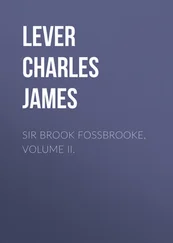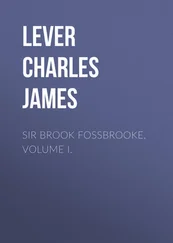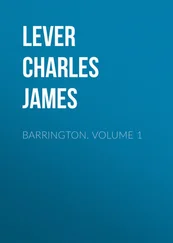Charles Lever - Tom Burke Of Ours, Volume II
Здесь есть возможность читать онлайн «Charles Lever - Tom Burke Of Ours, Volume II» — ознакомительный отрывок электронной книги совершенно бесплатно, а после прочтения отрывка купить полную версию. В некоторых случаях можно слушать аудио, скачать через торрент в формате fb2 и присутствует краткое содержание. Жанр: literature_19, foreign_antique, foreign_prose, на английском языке. Описание произведения, (предисловие) а так же отзывы посетителей доступны на портале библиотеки ЛибКат.
- Название:Tom Burke Of Ours, Volume II
- Автор:
- Жанр:
- Год:неизвестен
- ISBN:нет данных
- Рейтинг книги:3 / 5. Голосов: 1
-
Избранное:Добавить в избранное
- Отзывы:
-
Ваша оценка:
- 60
- 1
- 2
- 3
- 4
- 5
Tom Burke Of Ours, Volume II: краткое содержание, описание и аннотация
Предлагаем к чтению аннотацию, описание, краткое содержание или предисловие (зависит от того, что написал сам автор книги «Tom Burke Of Ours, Volume II»). Если вы не нашли необходимую информацию о книге — напишите в комментариях, мы постараемся отыскать её.
Tom Burke Of Ours, Volume II — читать онлайн ознакомительный отрывок
Ниже представлен текст книги, разбитый по страницам. Система сохранения места последней прочитанной страницы, позволяет с удобством читать онлайн бесплатно книгу «Tom Burke Of Ours, Volume II», без необходимости каждый раз заново искать на чём Вы остановились. Поставьте закладку, и сможете в любой момент перейти на страницу, на которой закончили чтение.
Интервал:
Закладка:
Never was there a coup de main more hardy than this, whether we look to the danger of the deed itself, or the insignificant force by which it was accomplished. A few horsemen and some companies of foot, led on by an heroic chief, thus turned the whole fortune of Europe; for, by securing this bridge, Napoleon enabled himself, as circumstances might warrant, to unite the different corps of his army on the right or left banks of the Danube, and either direct his operations against the Russians, or the Austrians under the Archduke Charles, as he pleased.
The treachery by which the bold deed was made successful, was, alas! deemed no stain on the achievement. But one rule of judgment existed in the Imperial army: Was the advantage on the side of France, and to the honor of her arms? That covered every flaw, no matter whether inflicted by duplicity or breach of faith. The habit of healing all wounds of conscience by a bulletin had become so general, that men would not trust to the guidance of their own reason till confirmed by some Imperial proclamation; and when the Emperor declared a battle gained and glory achieved, who would gainsay him? If this blind, headlong confidence tended to lower the morale of the nation, in an equal degree did it make them conquerors in the field; and thus – by a strange decree of Providence, would it seem – were they preparing for themselves the terrible reverse of fortune which, when the destinies of their leader became clouded and their confidence in him shaken, was to fall on a people who lived only in the mad intoxication of victory, and knew not the sterner virtues that can combat with defeat.
But so was it. Napoleon commanded the legions and described their achievements; he led them to the charge and he apportioned their glory; the heroism of the soldier had no existence until acknowledged by the proclamation after the battle; the valor of the general wanted confirmation till sealed by his approval. To fight beneath his eyes was the greatest glory a regiment could wish for; to win one word from him was fame itself forever.
If I dwell on these thoughts here, it is because I now felt for the first time the sad deception I had practised on myself; and how little could I hope to realize in my soldier’s life the treasured aspirations of my boyhood Î Was this, then, indeed the career I had pictured to my mind, – the chivalrous path of honor? Was this the bold assertion of freedom I so often dreamed of? How few of that armed host knew anything of the causes of the war, – how much fewer still cared for them! No sentiment of patriotism, no devotion to the interests of liberty or humanity, prompted us on. Yet these were the thoughts first led me to the career of arms; such ambitious promptings first made my heart glow with the enthusiasm of a soldier.
This gloomy disappointment made me low-spirited and sad. Nor can I say where such reflections might not have led me, when suddenly a change came over my thoughts by seeing a wounded soldier, who had just arrived from Mortier’s division, with news of a fierce encounter they had sustained against Kutusof’s Russians. The poor fellow was carried past in a litter, – his arm had been amputated that same morning, and a frightful shot-wound had carried away part of his cheek; still, amid all his suffering, his eye was brilliant, and a smile of proud meaning was on his lips.
“Lift it up, Guillaume; let me see it again,” said he, as they bore him along the crowded street.
“What is it he wishes?” said I. “The poor fellow is asking for something.”
“Yes, mon lieutenant. It is the sabre d’honneur the Emperor gave him this morning. He likes to look at it every now and then; he says he doesn’t mind the pain when he sees that before him. And it is natural, too. ”
“Such is glory!” said I to myself; “and he who feels this in his heart has no room for other thoughts.”
“Oh, give to me the trumpet’s blast, And the champ of the charger prancing; Or the whiz of the grape-shot flying past, That ‘a music meet for dancing.
“Tralararalal” sang a wild-looking voltigeur, as he capered along the street, keeping time to his rude song with the tramp of his feet.
“Ha! there goes a fellow from the Faubourg!” said an officer near me.
“The Faubourg?” repeated I, asking for explanation.
“Yes, to be sure. The Faubourg St. Antoine supplies all the reckless devils of the army; one of them would corrupt a regiment, and so, the best thing to do is to keep them as much together as possible. The voltigeurs have little else; and proof is, they are the cleverest corps in the service, and if they could be kept from picking and stealing, lying, drinking, and gambling, there’s not a man might not be a general of division in time. There goes another!”
As he spoke, a fellow passed by with a goose under his arm, followed by a woman most vociferously demanding restitution; while he only amused himself by replying with a mock courtesy, deploring in sad terms the unhappy necessities of war and the cruel hardships of a campaign.
“It’s no use punishing those fellows,” said the officer. “They desert in whole companies if you send one to the salle de police ; and so we have only one resource, which is, to throw them pretty much in advance, and leave their chastisement to the enemy. And, sooth to say, they ask for nothing better themselves.”
Thus, even these fellows seemed to have their own sentiment of glory, – a problem which the more I reasoned over the more puzzled did I become.
While a hundred conjectures were hourly in circulation, none save those immediately about the person of Napoleon could possibly divine the quarter where the great blow was to be struck, although all were in expectation of the orders to prepare for battle. News would reach us of marchings and counter-marchings; of smart skirmishes here, and prisoners taken there; yet could we not form the slightest conception of where the chief force of the enemy lay, nor what the direction to which our own army was pointed. Indeed, our troops seemed to scatter on every side. Marmont, with a strong force, was despatched towards Gratz, where it was said the Archduke Charles was at the head of a considerable army; Davoust moved on Hungary, and occupied Presburg; Bernadotte retraced his steps towards the Upper Danube, to hold the Archduke Frederick in check, who had escaped from Ulm with ten thousand men; Mortiers corps, harassed and broken by the engagement with Kutusof, were barely sufficient to garrison Vienna; while Soult, Lannes, and Murat pushed forward towards Moravia, with a strong cavalry force and some battalions of the Guard. In fact, the whole army was scattered like an exploded shell; nor could we see the means by which its wide extended fragments were to be united at a moment, much less divine the spot to which their combined force was to be directed.
Had these Russians been fabulous creatures of a legend, instead of men of mortal mould, they could scarcely have been endowed with more attributes of ubiquity than we conferred on them. Sometimes we believed them at one side of the Danube, sometimes at the other; now we heard of them as retreating by forced marches into their native fastnesses, now as encamped in the mountain regions of Moravia. Yesterday came the news that they laid down their arms and surrendered as prisoners of war; to-day we heard of them as having forced back our advanced posts and carried off several squadrons as prisoners.
At length came the positive information that the allied armies were in cantonments around Olmutz; while Napoleon had pushed forward to Brunn, a place of considerable strength, communicating by the highroad with the Russian headquarters. It was no longer doubtful, then, where the great game was to be decided, and thither the various battalions were now directed by marches day and night.
Читать дальшеИнтервал:
Закладка:
Похожие книги на «Tom Burke Of Ours, Volume II»
Представляем Вашему вниманию похожие книги на «Tom Burke Of Ours, Volume II» списком для выбора. Мы отобрали схожую по названию и смыслу литературу в надежде предоставить читателям больше вариантов отыскать новые, интересные, ещё непрочитанные произведения.
Обсуждение, отзывы о книге «Tom Burke Of Ours, Volume II» и просто собственные мнения читателей. Оставьте ваши комментарии, напишите, что Вы думаете о произведении, его смысле или главных героях. Укажите что конкретно понравилось, а что нет, и почему Вы так считаете.












